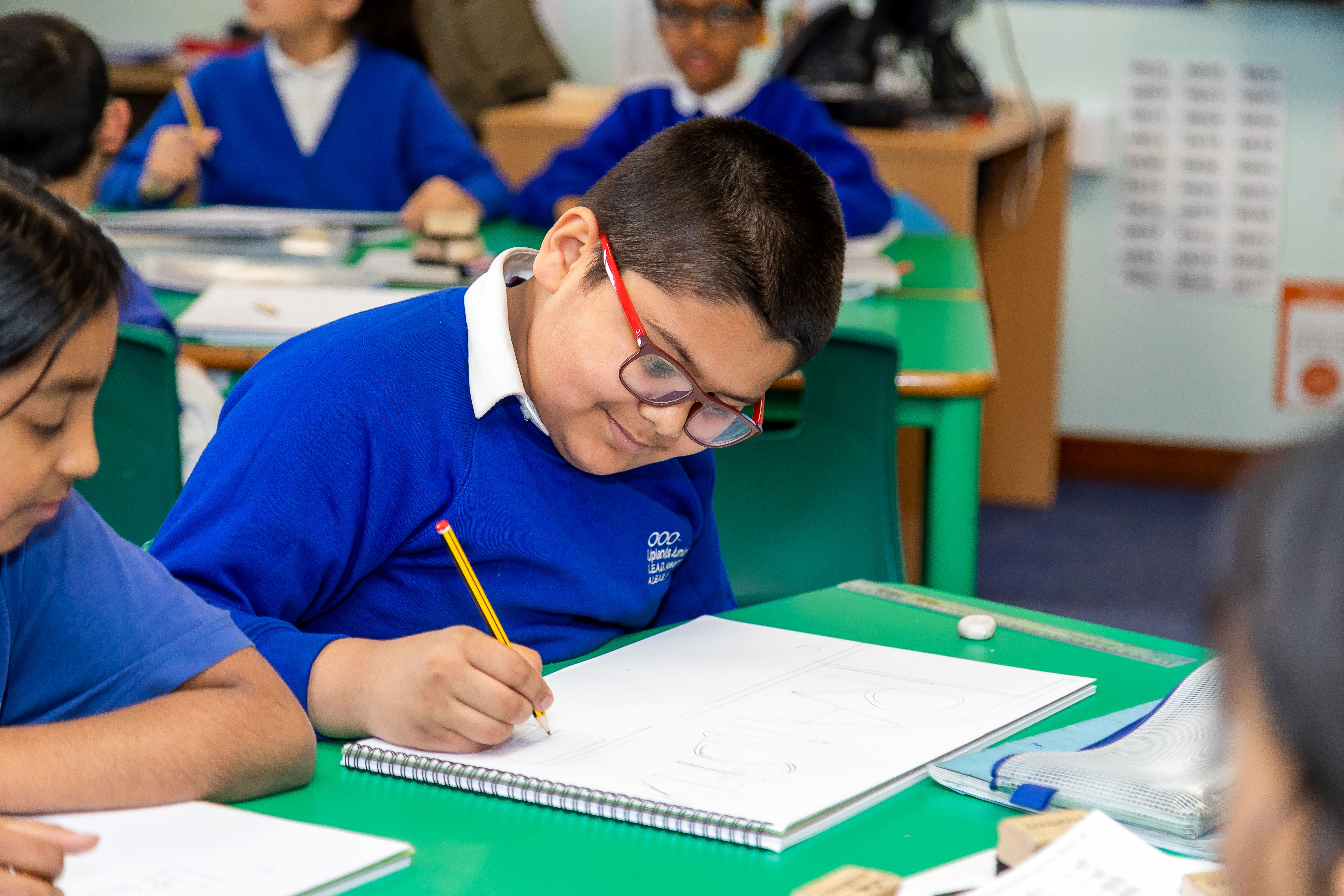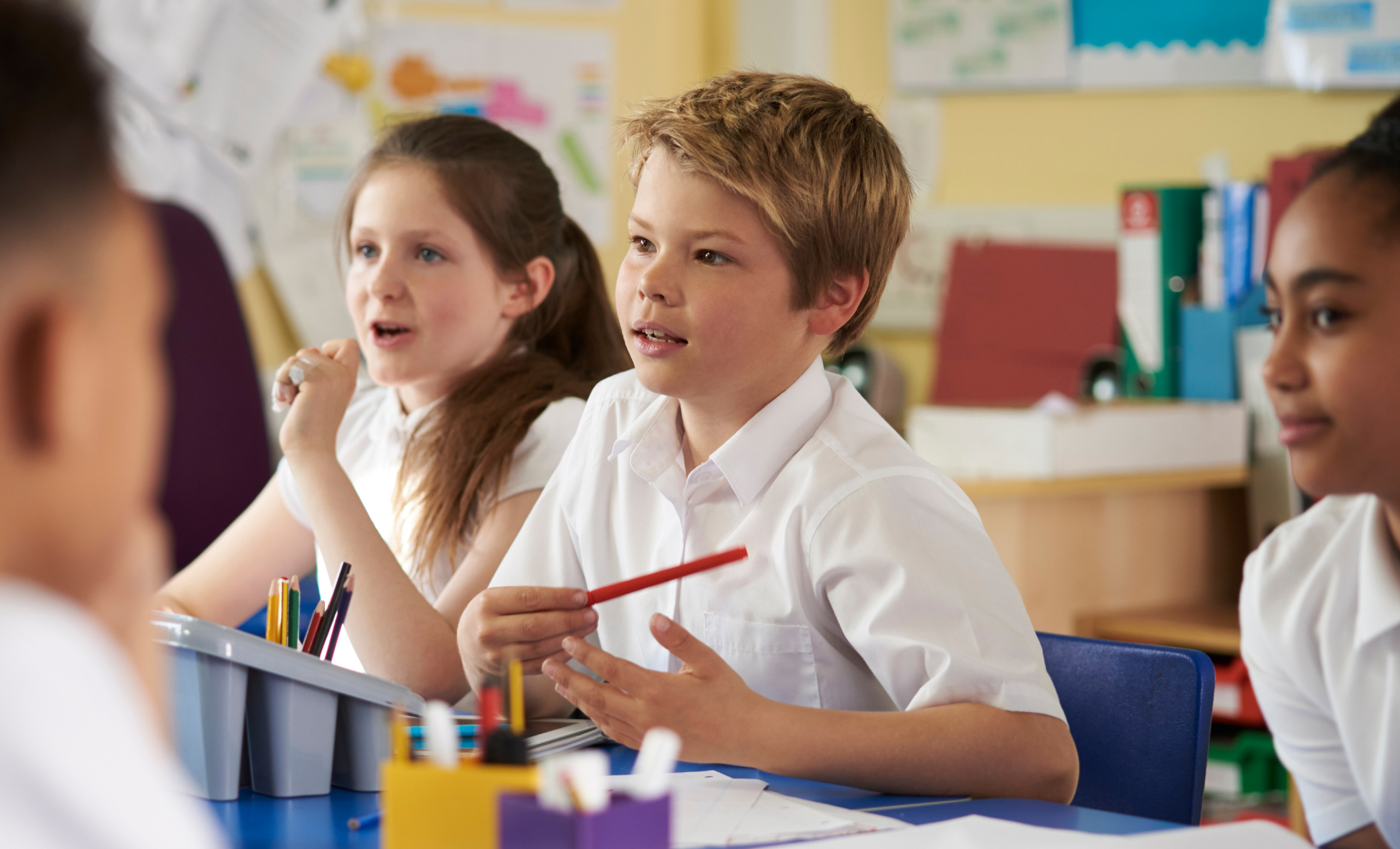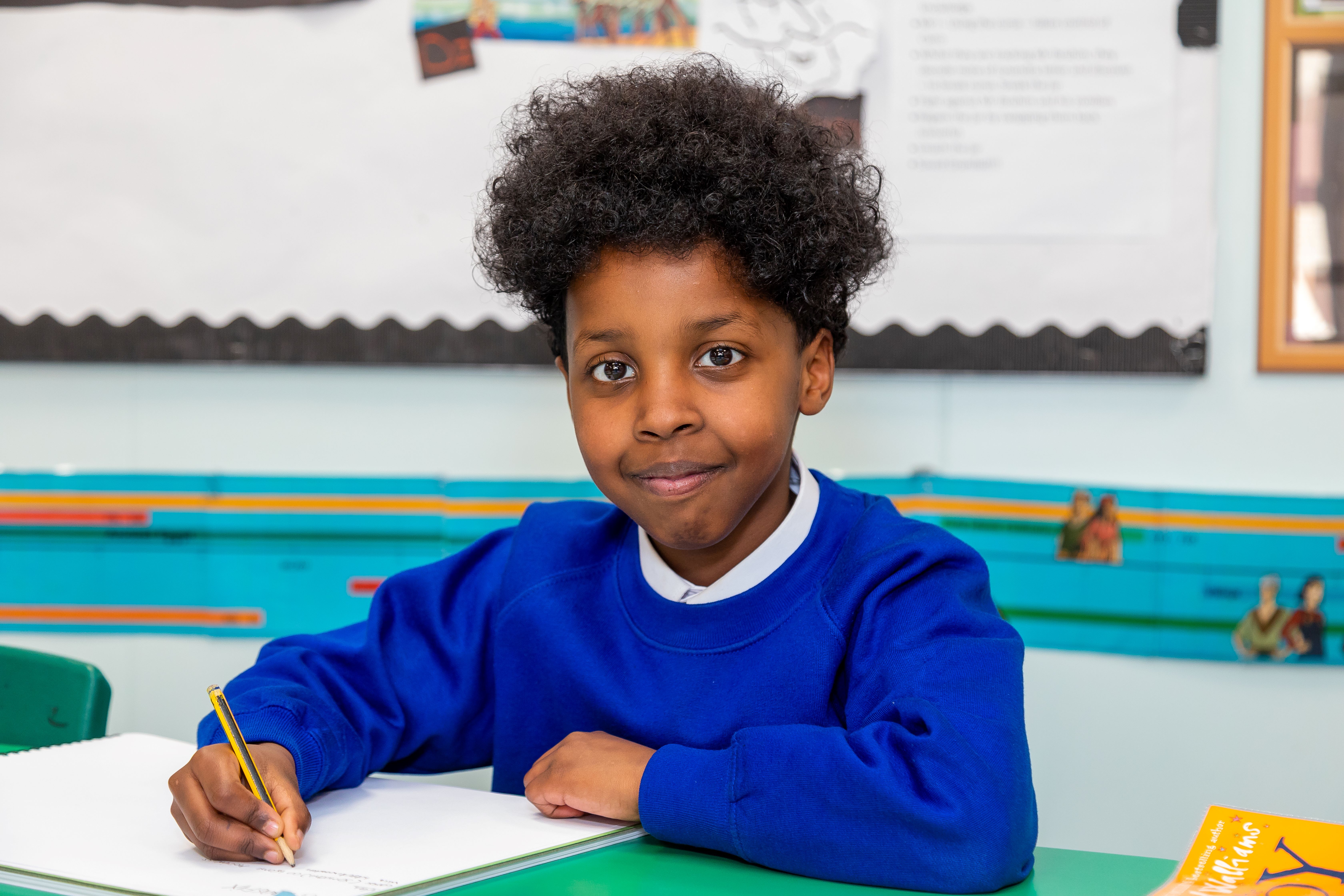At Uplands, the writing curriculum is structured to allow children to become independent, fluent writers, communicating effectively across a range of genres and text types. The writing curriculum uses high-quality texts, allowing children to use each text as a hook for writing. By undertaking this approach, children will naturally learn different sentence structures, be exposed to high quality language, learn the difference between formal and informal language, and it develops reading fluency and comprehension skills. All children are expected to write independently in all independent writing sessions to ascertain their learning and understanding. Some writing may also be inspired by trips, film clips, visuals, or first-hand experiences.
The writing sequence for English lessons is split into 6 steps:
- Grammar lessons– grammar knowledge pertinent to the text type are taught in engaging and meaningful ways, and then applied in independent writing sessions. Each year group develops grammar teaching from the previous year, as well as introducing new grammar knowledge relevant to the year group as per the National Curriculum’s statutory requirements. Within this, children will read and analyse WAGOLLs. This stands for ‘What A Good One Looks Like’. These are model texts which the children annotate for grammar, language and features of that text type. The purpose and audience are discussed too.
- Toolkits: these are created with the children, discussing the grammar feature of the text type and their impact on the reader with examples from the WAGOLLs.
- 1st Attempt and Revisit: Children plan, orally rehearse and write their 1st attempt implementing the grammar learning. Teachers demonstrate and model expectations via modelled & shared writes. Teachers live mark to improve grammar and cohesion. Each class teacher will then revisit and reteach any aspects their class need to improve on in preparation for their 2nd attempt.
- 2nd Attempt (independent write): children plan, orally rehearse and write their 2nd attempt which is then assessed. All children write independently.
- Proofreading lessons
- Editing lessons – At the end of each 1st and 2nd attempts, children proofread and edit their work either independently or with a peer using the COGS and ARMS approach.

Transcription skills: These are taught explicitly in separate lessons.
- Handwriting is taught weekly following the handwriting policy. We use Letter-Join font from the online platform Letter-Join. Video visuals help support accurate letter formation. There is a wealth of games and resources which can be used. This programme can be accessed at home via the Parent > Home Learning tab. Each week, the class teachers will aware a child who has demonstrated good handwriting and presentation that week.
- For spellings we follow the ‘No Nonsense Spelling’ scheme which is taught twice a week. It follows a ‘Teach, Practise, Apply’ method. This approach supports the learning and application of the National Curriculum statutory spellings for years3&4 and 5&6. Spelling tests are weekly and follow a sentence dictation approach testing 5x No Nonsense Spelling words within context. Children will write the whole sentence as part of their test. Some children may have 3 words from Key Stage 1 words or from their phonic stage, but they will be within a dictated sentence of words they are familiar with.
Interventions
B-Squared – This is for children who need additional support. It is a scheme whereby children’s individual needs are met via a series of tasks and activities designed to enhance their learning quickly via repetition until they are secure.
Colourful Semantics – This is a scheme to help support children to develop grammatically correct sentences. It progresses in stages developing from 2 words up to 4+. Each part of the sentence is colour-coded to help them remember certain parts of the sentence.



